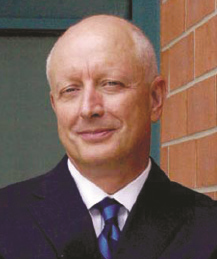Investors and Wall Street have become mutually bullish on the stock market since the Presidential election. This rising optimism is also supported by the belief that corporate earnings are strengthening as the economy improves. PNC Financial Services Group has predicted 2.3% GDP growth in 2017 versus last year’s growth of 1.5% T. Rowe Price’s Outlook predicts a “strong rebound” for the year.
Unfortunately, the stock market is highly unpredictable, tending to defy logic and fundamental analysis in the short-term. No one has a crystal ball. Take 2016, for example:
- Stocks tumbled at the beginning of the year as investors braced themselves for a global slow down and US recession. It didn’t happen.
- Stocks rallied on expectations that the UK would choose to remain in the European Union. The UK voted to leave.
- Stocks took off again when voters were sure that Clinton would win the presidency. She didn’t.
- U.S. stocks dropped for only two days following the Brexit vote and for only a few hours after Trump was elected. The S&P 500 index gained 12% and the Dow Jones Industrials came close breaking 20,000 at the end of 2016.
- Bonds were beaten down with the mercurial rise of stocks after the election. The waning of excitement for stocks later in December sparked a minor bond rally.
Investors are speculating that Trump’s promises of tax cuts and reductions in government spending will stimulate growth in 2017. We can share that hope, but many of us have learned not to make any big bets based on speculation.
The fact is that over any 12-month period, the market rises 73% of the time. Those are pretty good odds, but an investment in the market for one year or less is still considered short-term and risky. Markets are typically volatile in the short-term, whereas they become more predictable in the long-term – say, more than five years. Looking at rolling 10-year periods, the market rises 93% of the time.
Investors may be getting overly optimistic based on Trump’s short-term effects on the market and should instead focus on the long-term implications of his policies, a position advocated by
Tim Lee in a CNBC interview recently. Investors who focus on political opportunities tend to get caught up in the election aftermath, losing sight of larger trends.
Political events are important but may prove only to be buying opportunities. Many make the mistake of trying to position their investments in terms of an occurring event but end up chasing the market. As Wayne Gretzky once said, “I skate to where the puck is going to be, not where it has been.”
Hopefully, 2017 will be a great year in stocks. There are many indicators pointing in that direction, but what if stocks go the other way?
If Trump and Congress fail to deliver on their promises of tax cutting, reducing regulations, and spending on infrastructure, the market could react poorly. If interest rates should spike or inflation becomes rampant, the market could respond negatively. If corporate earnings fail to materialize, the market could fall off. This bull market has lasted for eight years, and we are in a mature phase of the economic cycle. History indicates a market correction is overdue.
Investors are excited about the prospective market response to major political change in this country in 2017, but may forget to think long-term. What might be good for the economy may not favor stocks in the short-term, although it will certainly help in the long-run. We have experienced a very slow economic recovery during the last eight years, and yet the stock market has enjoyed phenomenal success – go figure. Taking history for granted can be a big mistake, so we continue to recommend diversification with bonds, real estate, and other asset classes to help manage risk.
We don’t want to get too excited when the market goes up, and we don’t want to get depressed when the market goes down. The only thing we really know for sure is that the market will go up and down. Investing with a slow and steady approach, with your financial goals in mind, makes the most sense over time. Think long-term when it comes to your investments, avoid putting all your eggs in one basket, and try not to get caught up in the day-to-day chatter of politics and the financial news, and you’ll be just fine.
Garrett S. Hoge, CFP®, ChFC®, MS of H Financial Management, is a private wealth manager based in Southpointe serving the ever-changing financial needs of his clients. Please contact Garrett at H Financial Management, 400 Southpointe Blvd., #420, Canonsburg, PA 15317 or call him at 724-745-9406.
